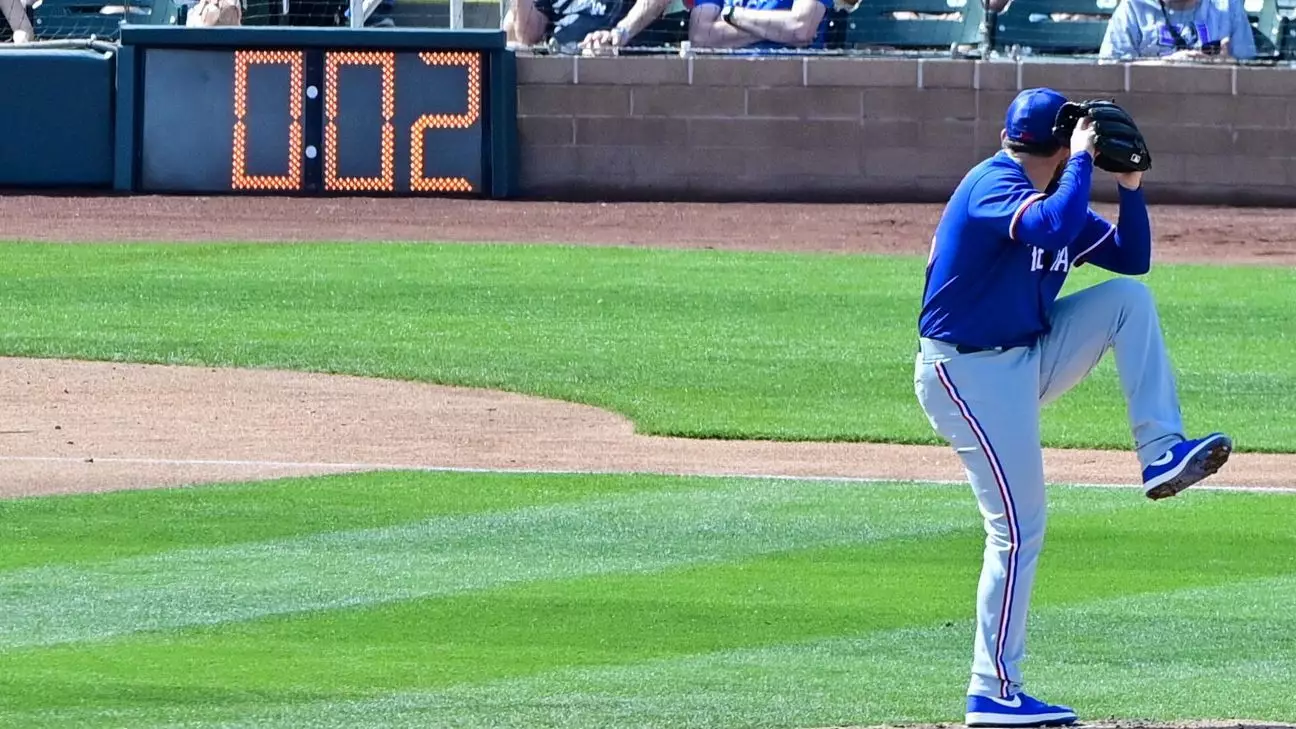Major League Baseball’s decision to reduce the pitch clock by two seconds with runners on base has sparked controversy within the players’ association. Tony Clark, the head of the association, believes that this adjustment is happening too quickly without allowing for sufficient dialogue and consideration from all parties involved. The reduction from 20 seconds to 18 seconds with men on base, and the constant 15-second clock with no one on base, has raised concerns about the impact on player performance and safety.
Clark expresses his disappointment in the lack of consultation and discussion surrounding the pitch clock adjustment. While MLB saw a significant reduction in average game times with the introduction of the clock last season, Clark questions the need for further changes so soon. The implications on pitcher recovery time and injury susceptibility, especially in high-stress situations, are at the forefront of these concerns.
The Oakland Athletics find themselves in a state of limbo as they navigate the uncertainty of their future ballpark location post-2024. With plans for a potential move to Las Vegas on the horizon, the A’s are exploring options to extend their lease in Oakland. However, the lack of clarity surrounding the team’s long-term venue has created frustration among players, fans, and city officials.
Clark emphasizes the urgency of making decisions regarding the A’s ballpark situation sooner rather than later. The prolonged deliberation could have far-reaching consequences for the team, its supporters, and other potential markets. Whether the A’s remain in Oakland, explore temporary locations like Sacramento or Salt Lake City, or ultimately relocate to Las Vegas, the need for resolution is pressing.
As MLB witnesses the prolonged availability of high-profile free agents like Blake Snell, Cody Bellinger, J.D. Martinez, and Matt Chapman, questions arise regarding the league’s approach to free agency negotiations. Clark advocates for maintaining the current flexibility in free agent rules, which allow for ongoing discussions without imposing strict deadlines for signings.
MLB commissioner Rob Manfred’s suggestion of a deadline-driven free agent signing period has met resistance from the players’ union in the past. Clark highlights the potential negative impact of imposing deadlines on player-team negotiations, emphasizing the importance of finding a balance between player autonomy and team needs in the free agency process.
The possibility of MLB players participating in the 2028 Los Angeles Olympics has generated excitement among athletes like Bryce Harper. While players express interest in representing their country on the international stage, logistical challenges and details remain to be sorted out. Clark acknowledges the enthusiasm surrounding the Olympics but underscores the need for formal discussions and concrete plans to ensure a smooth transition for players interested in competing in the Games.
The ongoing dialogue between MLB players, league officials, and union representatives highlights the complexities and considerations involved in implementing changes like the pitch clock adjustment, resolving ballpark uncertainties, addressing free agency dynamics, and exploring Olympic opportunities. The evolving landscape of professional baseball requires careful navigation and collaboration to support the long-term success and growth of the sport.


Leave a Reply